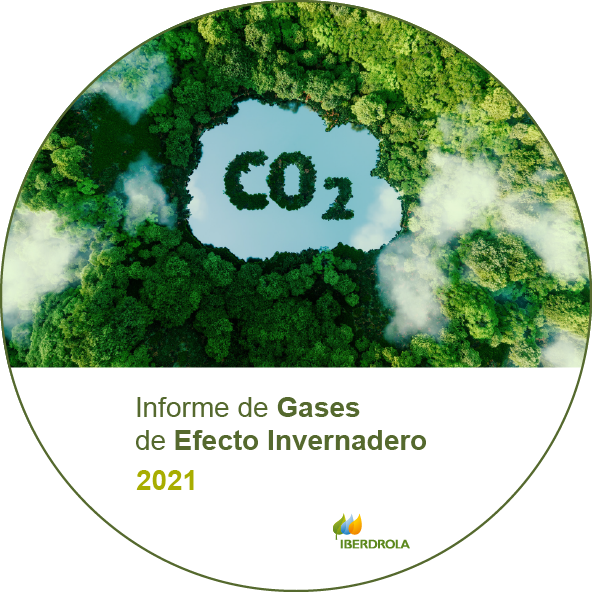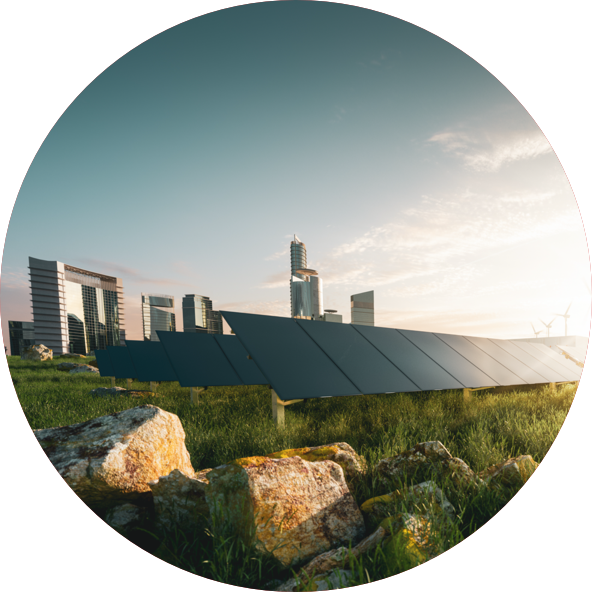Environmental management
We are responding to environmental challenges and opportunities
Our environmental management is based on the principles of respect for the environment, dialogue with stakeholders and a single Environmental Management System that acts as a common framework for the coordination of the different plans and measures, as well as the transparency of the information published on the company's environmental impact.

A sustainable energy model must meet the following objectives:
Economic objective, which can be summarised as the need for stable, safe and competitive energy supplies (supply security and guarantee).
Social objective, which focuses on access for all people to this essential service under affordable economic conditions (service competitiveness and universality).
Environmental objective, which translates to lower emissions and greater efficiency in the production and use of energy, as well as compliance with other environmental regulations.
To achieve this last objective, in 2008 the Iberdrola group approved its Environmental Management System in order to create a common framework for environmental matters, which makes it possible to coordinate the different plans and measures, while respecting the autonomy and particularities at regional level. True to its commitment to transparency, the company also publishes different information about its environmental impact on an annual basis in order to evaluate the performance of its environmental management and to implement improvements.
Transparency in environmental management
Environmental footprint
One of the pillars of the Iberdrola Group's commitment to transparency in environmental matters is evidenced by the annual publication of the Corporate Environmental Footprint (CEF), which enables the company to identify the degree to which its activity affects the different categories of environmental impact, trace its cause and reduce these impacts.

Certifications and verifications
Through different certifications and verifications based on international standards, the company demonstrates that it has a solid Environmental Management System that is driven by the premise of continuous improvement.

Greenhouse gas report
In order to reduce its carbon footprint as much as possible, which represents the total volume of greenhouse gases produced by the economic and daily activities of human beings, Iberdrola has drawn up a greenhouse gas (GHG) inventory based on international standards such as the GHG (Protocol Corporate Accounting and Reporting Standard) and the ISO 14064-1:2018.

Intensity emissions
Iberdrola is the only European electricity utility selected in the 23 editions of the prestigious Dow Jones Sustainability Index and is considered one of the world's top most sustainable utilities. Among other achievements, it has reduced its direct emissions by 25 % in the last five years.

Action principles of our environmental management
The Company's environmental strategy and management has been acknowledged on different international environmental performance indexes, such as FTSE4Good. To advance in this direction, Iberdrola has the following basic principles:

Environmental management system
The Iberdrola Group's Environmental Management System comprises the following elements:

Therefore, the Iberdrola Group's Environmental Management System converts the corporate environmental policies into environmental guidelines. These environmental guidelines have been established throughout Iberdrola organisations as environmental goals and targets, including the allocation of responsibilities, resources and deadlines.
The environmental guidelines aligned with the SDGs and that define Iberdrola's strategic lines are:

The management system provides very positive aspects, such as:

Environmental organization
In order to comply with its approved policies, the Iberdrola Group has established an organisation that deals with environmental management in a decentralised manner.

Environmental stakeholders
Within the framework of its stakeholder, relations, Iberdrola has established numerous channels of communication and dialogue with the most important groups in the environmental field. These channels allow Iberdrola to communicate its objectives, actions and achievements in this field and receive assessments and requests from stakeholders linked with the environmental dimension.

The company also makes the Environment Mailbox, medioambiente@iberdrola.es, available to stakeholders for any suggestion, doubt or clarification on the subject.
Towards a sustainable energy model
Greenhouse gas (GHG) emissions from human activity have made global warming the biggest environmental problem of the next decade. As a world leader in renewable energies and wind production, at Iberdrola we are committed to a clean, reliable and smart business model while focusing our activity on the supply of energy that is affordable to everyone and is non-polluting (SDG 7).
.

We are the top producer of wind power in the world and leader in renewable energy
Within its commitment to the UN Sustainable Development Goals the company focuses particularly on SDG 7, Affordable and Clean Energy - and is working to bring electricity to everyone and to optimise energy use.

Glaciers, the great guardians of the stability of the planet's climate
The melting of the glaciers, a phenomenon that intensified in the 20th century, is leaving our planet iceless. Human activity is the main culprit in the emission of carbon dioxide and other greenhouse gases.

Discover the world's most sustainable cities
The global population is 7.6 billion (UN, 2017) and much of it is concentrated in cities, which contribute the most to greenhouse gas (GHG) emissions and, at the same time, offer the best hope for reducing the ecological footprint on a global scale.

The big global environmental issues we need to resolve by 2030
Climate change is the big environmental problem humanity will face over the next decade, but it isn't the only one. We will now review some of them and address the challenges ahead.




